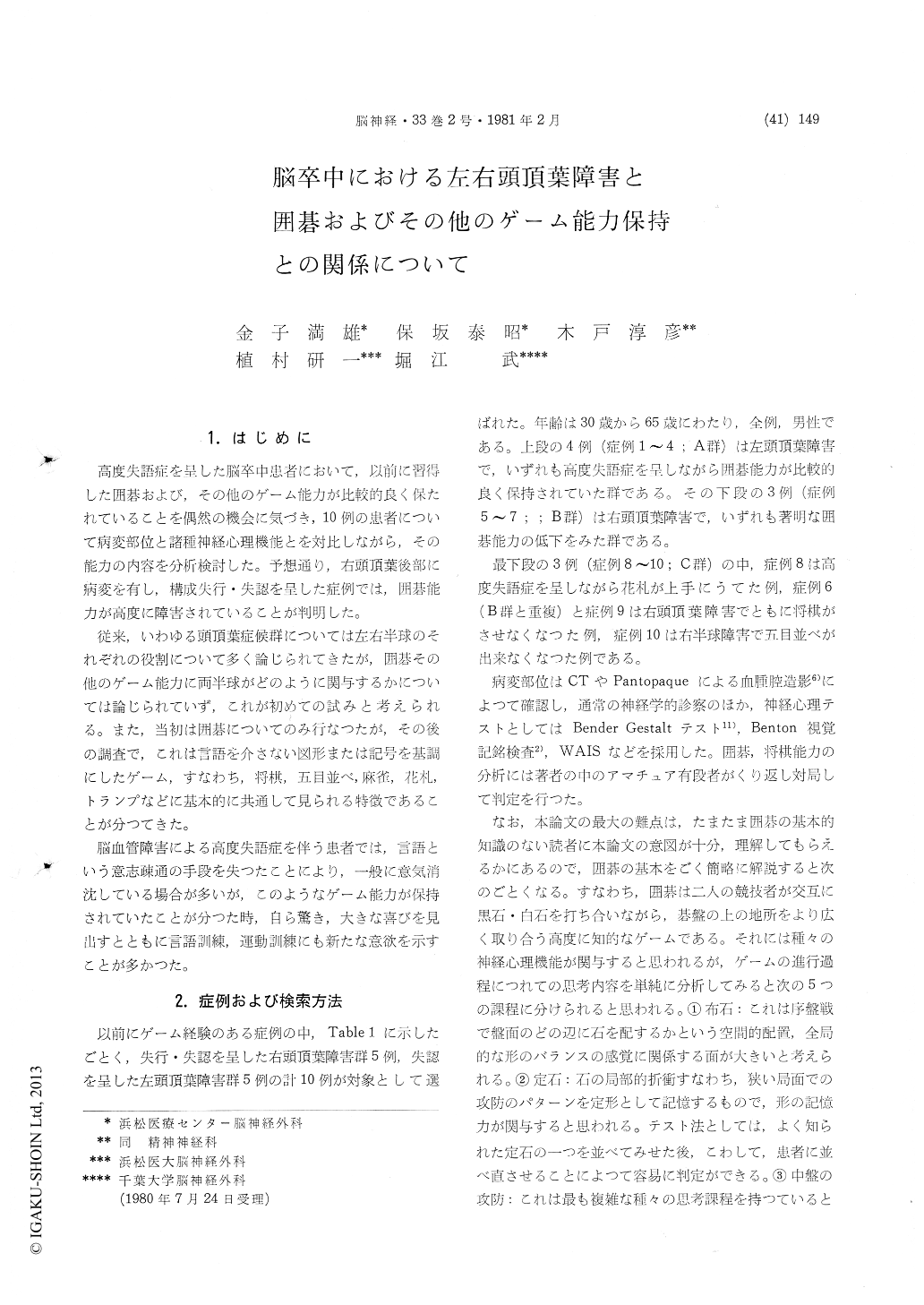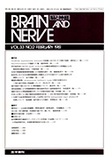Japanese
English
- 有料閲覧
- Abstract 文献概要
- 1ページ目 Look Inside
1.はじめに
高度失語症を呈した脳卒中患者において,以前に習得した囲碁および,その他のゲーム能力が比較的良く保たれていることを偶然の機会に気づき,10例の患者について病変部位と諸種神経心理機能とを対比しながら,その能力の内容を分析検討した。予想通り,右頭頂葉後部に病変を有し,構成失行・失認を呈した症例では,囲碁能力が高度に障害されていることが判明した。
従来,いわゆる頭頂葉症候群については左右半球のそれぞれの役割について多く論じられてきたが,囲碁その他のゲーム能力に両半球がどのように関与するかについては論じられていず,これが初めての試みと考えられる。また,当初は囲碁についてのみ行なつたが,その後の調査で,これは言語を介さない図形または記号を基調にしたゲーム,すなわち,将棋,五目並べ,麻雀,花札,トランプなどに基本的に共通して見られる特徴であることが分つてきた。
Our present study was initiated when it was no-ticed by chance in a case of severe aphasia associ-ated with a cerebrovascular disease that his previ-ously learned ability of the go-game had been fairly well preserved. Among our cases of cerebrovascular diseases, 10 patients were found to have had con-siderable learning experience of go- and/or other games. They were submitted to several neuro-psychological tests in order to study correlation between the site of lesions in either hemisphere and the degree or pattern of disturbance in the ability to play the games.
In 3 cases (#5, 6, 7) in which the lesion involved the right parietal lobe accompanied by constructive apraxia and visuospatial agnosia, the ability of go-game was highly disturbed, particu-larly because of neglect of the left half of the go-board.
In 4 cases (#1, 2, 3, 4) in which the lesion was in the left parietal lobe resulting in severe aphasia, the ability of go-game was fairly well pre-served even in the strategic arrangement of go-stones ("fuseki"), the established tactics ("joseki") and the end game ("yose"). They could enjoy the go-game very well.
2 patients with left hemiplegia (#6, 9), became unable to play the Japanese chess and another patient with left hemiplegia (#10) lost the ability to play the go-bang ("gomokunarabe"), whereas another patient with severe aphasia (#8) preserved his ability to play the Japanese flower cards.
These examples indicate that the right cerebral hemisphere must be playing a more dominant role in such games as go-games, Japanese chess, go-bang, Japanese flower cards and mah-jongh in which ar-rangement of figures or signals is the key to play without use of language. These games were em-ployed in reactivating their psychological function and volition.

Copyright © 1981, Igaku-Shoin Ltd. All rights reserved.


